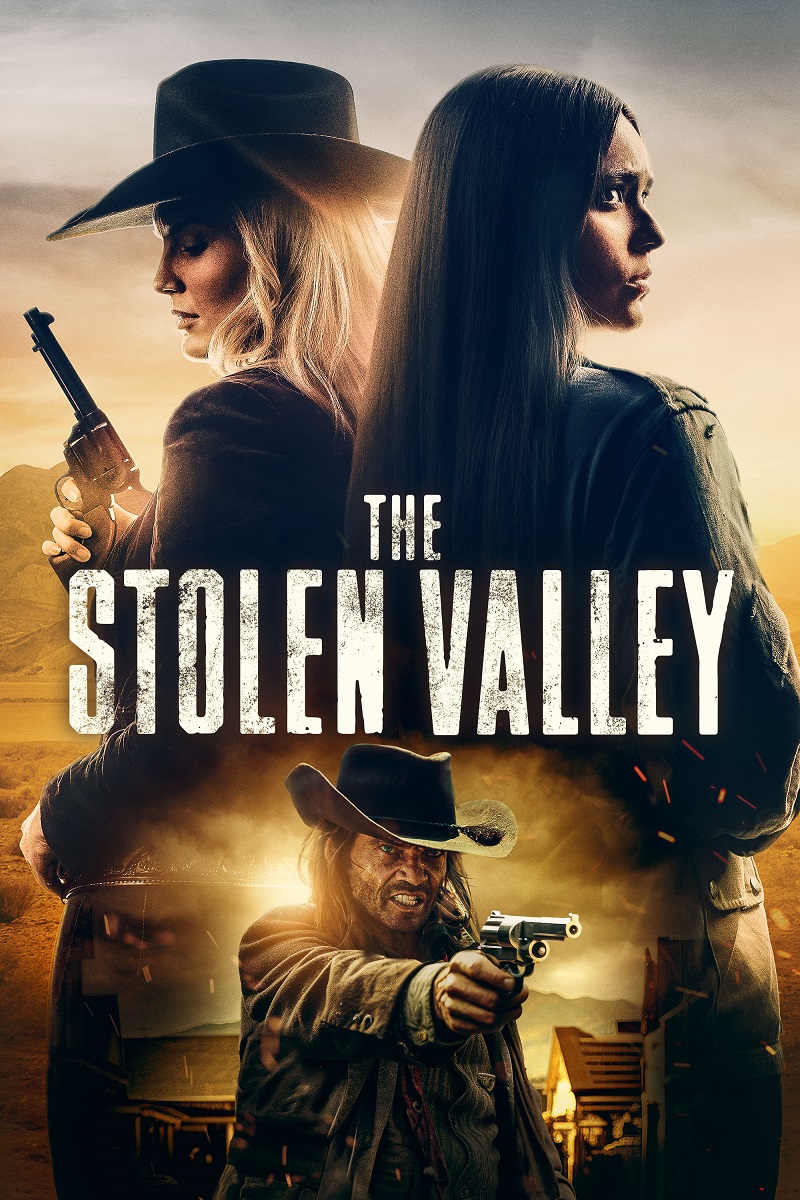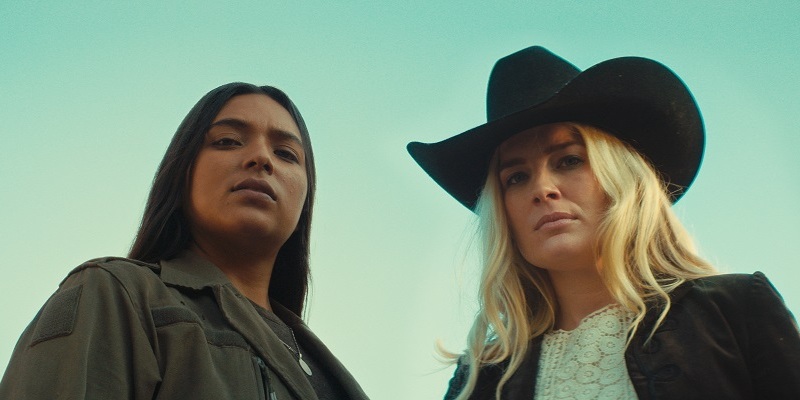
Review by
Eric Hillis
Directed by: Jesse Edwards
Starring: Briza Covarrubias, Allee Sutton Hethcoat, Micah Fitzgerald, Paula Miranda, Estaban Cueto, Ricardo Herranz

With its rodeo ridin', pistol packin', flamenco dancin' heroines,
writer/director Jesse Edwards' feature debut
The Stolen Valley is a dumb but reasonably enjoyable cross
between Thelma and Louise and a 1970s exploitation flick for
about half of its running time. It's when it attempts to tackle the issue of
the mistreatment of Native Americans by exploitative white men in its second
half that it falls apart, its reductive script completely incapable of
exploring this subject with any depth or nuance.

The film boasts a pair of likeable leads in Lupe (Briza Covarrubias)
and Maddy (Allee Sutton Heathcoat). Half Mexican/half Navajo Lupe
works as a mechanic during the day and in her mother Adamina's (Paula Miranda) taco truck in the evenings. The mother and daughter dream of saving
enough money to leave their barren patch of desert some day, but their plans
are disrupted when Adamina collapses and is diagnosed with a brain tumour.
The treatment required would cost a whopping $50,000 and all seems lost
until Lupe learns of a family secret: the Mexican man in her family photos
isn't actually her father but her grandfather, and her real father is a
white man, Carl (Micah Fitzgerald), a corrupt land baron who stole
Navajo land and now plans to sell it to an oil company.
Meanwhile blue-eyed blond outlaw Maddy is in debt to Mexican mobster
Antonio (Ricardo Herranz). Meeting Antonio in the back of his pawn
shop, where Lupe just happens to be trading in some Navajo jewellery, Maddy
decides to shoot her way out rather than agreeing to further blackmail.
Caught in the crossfire, Lupe ends up fleeing with Maddy.
.jpg)
What follows is the usual buddy movie shtick of lots of bickering between
two mismatched people thrown together by fate, but the film never makes a
convincing case as to why Lupe puts herself in danger by sticking with
Maddy. Anyhow, the two head to meet Carl together and learnt the truth about
his evil ways, ending up on a collision course with the land baron and his
private army.
On paper The Stolen Valley has the ideal setup for a modern
western, but Edwards' script is overly reliant on unlikely coincidences and
the sort of reveals that wouldn't be out of place on a daytime soap opera. A
land deed in Adamina's name becomes the film's macguffin as proof of its
existence would ruin Carl's plans, but we're left to scratch our heads as to
why Carl wouldn't have destroyed it long ago. The film's closing minutes
have more shocking family secrets unveiled than an entire season of
Dallas. Every character is a crude stereotype, usually tied into their race.
While the movie has lots to say about how awful white men are, its female
and non-white characters are paper thin. One particular character exists
solely for a convenient moment in the finale, which you can see coming from
a mile away.

The Stolen Valley does have two things going for it. Its Utah
setting means practically every shot is easy on the eye and adds a veneer of
production value to a movie filmed in an unspectacular fashion. Despite how
badly written the characters are, there are some compelling performances. As
the mismatched heroines, Covarrubias and Sutton Heathcoat have a
chemistry that papers over the cracks in their characters' unconvincing
partnership. And Fitzgerald, who looks like an evil Willie Nelson, has the
good sense to chew the gorgeous scenery as the villainous Carl. But such
shading can't save the film from its one-dimensional storytelling.


